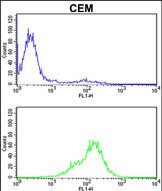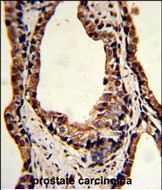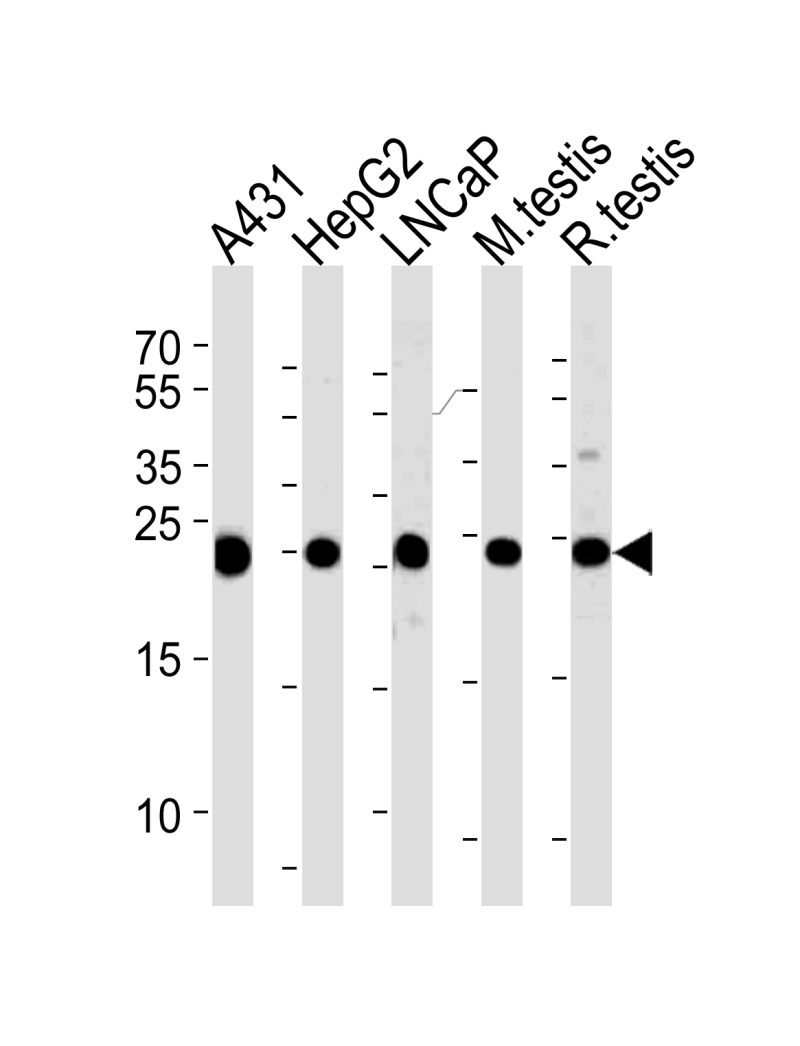


| WB | 1/1000 | Human,Mouse,Rat |
| IF | 咨询技术 | Human,Mouse,Rat |
| IHC | 1/100-1/500 | Human,Mouse,Rat |
| ICC | 技术咨询 | Human,Mouse,Rat |
| FCM | 1/10-1/50 | Human,Mouse,Rat |
| Elisa | 咨询技术 | Human,Mouse,Rat |
| Aliases | Triosephosphate isomerase, TIM, Triose-phosphate isomerase, TPI1, TPI |
| Entrez GeneID | 7167 |
| WB Predicted band size | 26.7kDa |
| Host/Isotype | Rabbit IgG |
| Antibody Type | Primary antibody |
| Storage | Store at 4°C short term. Aliquot and store at -20°C long term. Avoid freeze/thaw cycles. |
| Species Reactivity | Human, Mouse, Rat |
| Immunogen | This TPI1 antibody is generated from rabbits immunized with a KLH conjugated synthetic peptide between 258-286 amino acids from the C-terminal region of human TPI1. |
| Formulation | Purified antibody in PBS with 0.05% sodium azide,1%BSA and 50% glycerol.prepared by Saturated Ammonium Sulfate (SAS) . |
+ +
以下是关于TPI1抗体的示例参考文献(注:部分内容为示例性概括,建议通过学术数据库获取真实文献):
1. **文献名称**:*Autoantibodies against triosephosphate isomerase in patients with neuropsychiatric lupus*
**作者**:DeGiorgio LA, et al.
**摘要**:研究系统性红斑狼疮(SLE)患者中针对TPI1的自身抗体,发现其与中枢神经系统症状相关,提示TPI1可能是神经炎症的潜在生物标志物。
2. **文献名称**:*Triosephosphate isomerase deficiency: insights from antibody-based detection in a zebrafish model*
**作者**:Schneider A, et al.
**摘要**:利用TPI1特异性抗体分析斑马鱼模型中的酶表达缺失,揭示TPI1缺陷与溶血性贫血及神经退行性病变的分子机制。
3. **文献名称**:*TPI1 as a novel biomarker in colorectal cancer: immunohistochemical analysis using a monoclonal antibody*
**作者**:Wang Y, et al.
**摘要**:通过单克隆抗体检测结直肠癌组织中TPI1的表达水平,证实其高表达与肿瘤进展和化疗耐药性显著相关。
4. **文献名称**:*Development of a high-affinity anti-TPI1 antibody for functional studies in glycolysis*
**作者**:Müller M, et al.
**摘要**:报道一种新型高亲和力TPI1抗体的开发,用于糖酵解途径的功能性研究,验证其在细胞代谢调控中的作用。
建议通过PubMed、Web of Science等平台以“TPI1 antibody”“triosephosphate isomerase autoantibody”为关键词检索最新文献。
The TPI1 antibody is a crucial tool in biomedical research, primarily used to detect and study triosephosphate isomerase 1 (TPI1), a key enzyme in glycolysis. TPI1 catalyzes the reversible interconversion of dihydroxyacetone phosphate (DHAP) and glyceraldehyde-3-phosphate (G3P), a critical step in energy production. Dysregulation of TPI1 is linked to metabolic disorders, neurodegenerative diseases, and cancer, making it a focus of pathophysiological studies.
TPI1 antibodies are widely employed in techniques like Western blotting, immunohistochemistry (IHC), and immunofluorescence (IF) to assess protein expression, localization, and abundance in tissues or cell lines. These antibodies aid in identifying TPI1 as a potential biomarker in cancers, where its overexpression may correlate with tumor progression and poor prognosis. Additionally, they are instrumental in studying TPI deficiency, a rare autosomal recessive disorder causing neurological and muscular impairments.
Developed in various host species (e.g., rabbit, mouse), TPI1 antibodies are validated for specificity and sensitivity to ensure accurate detection. Their applications extend to drug development, enabling the evaluation of therapeutic agents targeting glycolytic pathways. As research on metabolic reprogramming in diseases advances, TPI1 antibodies remain vital for elucidating the enzyme's role in health and disease.
×